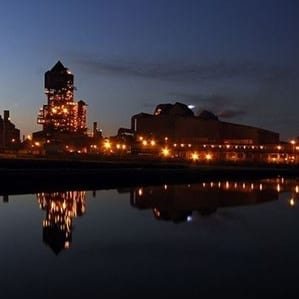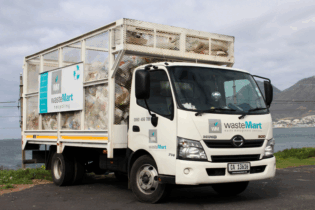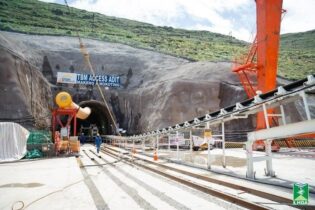The complaints were referred to the Tribunal for adjudication in January 2007. In the second complaint received in December 2008, the same complainants alleged that the conduct complained of in the first complaint had continued from 2004 to 2006. The Commission referred the second complaint to the Tribunal in November 2012.
The excessive pricing complaint: In July 2011, the Commission initiated a complaint into AMSA’s pricing policy for its flat steel products based on a complaint by the Department of Trade and Industry. The investigation pertained to AMSA allegedly charging excessive prices for its flat steel products in contravention of the Competition Act. The Commission has not made a finding in this matter. Agreed terms of settlement The Commission and AMSA have agreed to resolve the above complaints on the following terms: Three admissions: AMSA admits that it engaged in collusion with CISCO, Scaw and Cape Gate by fixing prices and discounts, allocating customers and sharing commercially sensitive information in the market for the manufacture of long steel products, in contravention of the Competition Act. AMSA also admits that it fixed the purchased price of scrap metal with Columbus Steel, Cape Gate and Scaw. In respect of the flat steel complaint and the Barnes Fencing complaints, AMSA admits the conduct as alleged by the Commission but does not admit that this conduct constituted a contravention of the Competition Act. In relation to the pricing complaint, AMSA does not admit that it acted in contravention of the Competition Act. However, it has agreed to remedies to address competition concerns arising from its pricing conduct. Administrative penalty: AMSA has agreed to pay an administrative penalty in the amount of R1.5 billion in five annual instalments of no less than R300 million. Pricing remedy for flat steel products: AMSA has agreed that it shall for a period of five years not be permitted to earn an earnings-before-interest-and-tax margin percentage greater than 10% relating to flat steel products sold in South Africa over a 12 months period linked to AMSA’s financial year. The 10% margin cap is subject to variation up to a maximum of 15% if certain market circumstances set out in the settlement agreement arise. Capital investment: As part of the settlement agreement, AMSA has committed a R4.64 billion capital expenditure over five years. “The Commission is delighted to bring an end to these longstanding proceedings. The penalty sends a strong message of deterrence and is an important milestone in the Commission’s enforcement against cartels,” said Commissioner Tembinkosi Bonakele. “In addition, the pricing remedy reflects our desire to protect South African consumers against dominant firms, particularly on key industrial products. This remedy is a safeguard in the event that AMSA were to revert to the historical prices that the Commission regards as excessive.”
South Africa’s Competition Commission has announced reaching a settlement agreement with ArcelorMittal South Africa Limited (AMSA), finalising all pending investigations and prosecutions against AMSA.
AMSA has admitted having been involved in the scrap metal and long steel cartels, and agrees to pay an administrative penalty of R1.5 billion. Furthermore, AMSA has agreed toremedy complaints against its pricing conduct without admitting that its pricing conduct constituted a contravention of the Competition Act.
In this regard, AMSA has undertaken that for a period of five years it will limit its earnings-before interest-and-tax margin to a cap of 10% for flat steel products sold in South Africa. In addition, AMSA has committed to a R4.6 billion capital expenditure over the next five years.
The Commission has, in turn, agreed that the settlement will cover all pending cases against AMSA including those that are still under investigation.
As a result, the Commission has filed an application with the Competition Tribunal for confirmation of this settlement agreement. The agreement relates to various cases that the Commission has investigated against AMSA, some of which were subsequently referred to the Tribunal for adjudication.
The following is a summary of the cases and the Commission’s findings.
Investigations and findings
Scrap metal cartel: In December 2009, the Commission initiated an investigation against the consumers of scrap, namely AMSA, Highveld, Cape Gate, CISCO and Columbus Stainless for collusive practices. The Commission’s investigation found that AMSA, Columbus Steel, Cape Gate and Scaw fixed the purchase price of scrap metal. In this regard, the Commission found that these firms collectively negotiated and agreed a standard formula which was used to determine the purchase price of scrap metal as a buyers’ cartel.
The Commission found that AMSA and Columbus Steel, Cape Gate and Scaw collaborated and acted in tandem with the upstream cartel of scrap merchants. In August 2013, the Commission referred this matter to the Tribunal for adjudication.
The long steel cartel: In April 2008, the Commission initiated an investigation against long and flat steel producers in South Africa, including AMSA. This investigation was initiated following concerns about high and increasing prices of steel products observed by the Commission despite South Africa being a net exporter of steel. As part of the investigation, on 19 June 2008, the Commission conducted a dawn raid at the premises of Cape Town Iron and Steel Works, Highveld Steel and Vanadium Corporation Limited, and the South African Iron and Steel Institute. Subsequently, Scaw South Africa, a subsidiary of Anglo American, applied for and was granted leniency for its involvement in collusive practices.
The Commission’s investigation found that AMSA, CISCO, Scaw and Cape Gate, being competitors in the manufacturing of long steel products, engaged in collusion by fixing prices and discounts, allocating customers and sharing commercially sensitive information through the South African Iron and Steel Institute 2 (SAISI) and the South African Reinforced Concrete Engineers’ Association. The Commission referred its findings to the Tribunal for prosecution.
The flat steel cartel: In April 2008, the Commission initiated an investigation against flat steel producers Highveld and AMSA. The Commission found that during the period 1999 and 2009, AMSA and Highveld had an understanding in terms of which Highveld would follow AMSA’s lead on pricing in the flat steel market. The Commission also found that AMSA and Highveld used the industry association, SAISI, to exchange commercially sensitive information, such as sales volumes. This conduct constituted price fixing and market allocation in contravention of the Competition Act. On 30 March 2012, the Commission referred a complaint against AMSA and Highveld to the Tribunal.
The Barnes Fencing complaints: In December 2003, the Commission received complaints from Barnes Fencing Industries, F&G Quality Tubes and Dunrose Trading (against AMSA and various wire producers. The complaints alleged that AMSA differentiated between its customers in terms of discounts offered for low carbon wire rod and that this conduct amounted to price discrimination in contravention of the Competition Act. The Commission’s investigations found that AMSA engaged in the conduct of price discrimination in contravention of the Competition Act. This complaint concerned the period 2000 to 2003.







